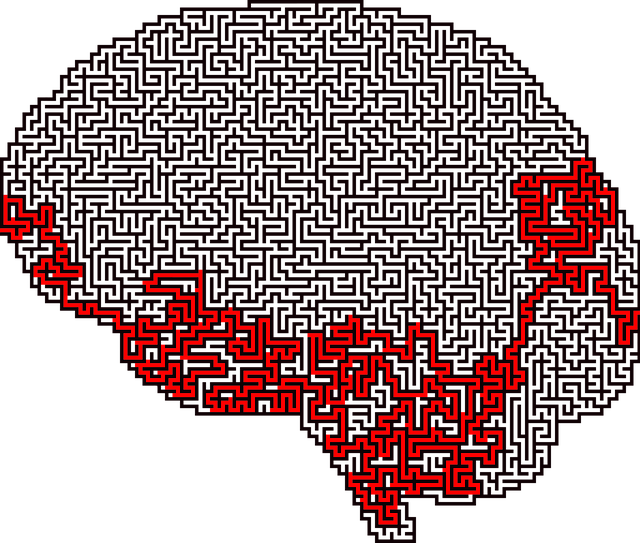The Longmont French Speaking Therapy program prioritizes mental health education through cultural competency training, tailored stress reduction methods, and interactive learning. By addressing stigma, promoting emotional well-being, and incorporating relatable narratives, the program fosters an inclusive environment for diverse French-speaking communities. Comprehensive risk assessment, self-awareness exercises, and practical role-playing scenarios equip participants with tools to provide compassionate, culturally sensitive therapy. Continuous impact assessments and feedback loops ensure the program's relevance and effectiveness in enhancing mental health awareness and self-esteem.
Mental health education is a vital component of holistic well-being, especially in diverse communities like Longmont. This article explores the design of an effective mental health program tailored for French-speaking individuals through the lens of Longmont French Speaking Therapy. We begin by establishing a robust foundation with an understanding of mental health, then delve into strategies for catering to diverse needs, key curriculum elements, interactive learning techniques, and measuring success. By examining these aspects, we aim to enhance mental wellness outcomes for all.
- Understanding Mental Health: A Foundation for Education
- Tailoring Programs to Diverse Audiences: The Role of French Language
- Essential Components of an Effective Mental Health Curriculum
- Implementing Interactive and Engaging Learning Strategies
- Measuring Impact and Promoting Continuous Improvement at Longmont French Speaking Therapy
Understanding Mental Health: A Foundation for Education

Understanding Mental Health is the cornerstone upon which effective education programs are built. For a Longmont French Speaking Therapy initiative to be impactful, it must start with a comprehensive grasp of various mental health conditions, their causes, and their manifestations. This knowledge equips both therapists and participants to recognize signs early on, breaking down barriers associated with stigma and promoting open dialogue. By fostering an environment where emotional expressions are normalized, the program paves the way for individuals to seek help without fear or hesitation.
Moreover, integrating Stress Reduction Methods and Emotional Well-being Promotion Techniques into the curriculum is vital. Teaching participants practical strategies to manage stress and improve their overall emotional health empowers them to take proactive steps toward wellness. This holistic approach, combined with Healthcare Provider Cultural Competency Training, ensures that the program caters to diverse populations, respecting and incorporating cultural nuances in therapy practices, thus creating a safe and inclusive learning space for all.
Tailoring Programs to Diverse Audiences: The Role of French Language

In designing mental health education programs for diverse audiences, particularly French-speaking communities in Longmont, it’s crucial to recognize and incorporate cultural nuances. Mental health discussions often require a certain level of comfort and trust, which can vary across different linguistic backgrounds. By offering programs tailored to the specific needs and preferences of French-speaking individuals, we ensure accessibility and effectiveness. This approach not only addresses burnout prevention and confidence boosting but also fosters a sense of belonging and understanding within this community.
Incorporating French language resources in mental health education involves more than just translation. It entails adapting materials to reflect cultural contexts relevant to French speakers. For instance, incorporating stories and analogies familiar to their experiences can enhance engagement and facilitate the development of coping skills. This strategy not only makes the program inclusive but also empowers participants to connect with the content on a deeper level, ultimately contributing to more significant improvements in mental well-being.
Essential Components of an Effective Mental Health Curriculum

An effective mental health education program should encompass several key components to ensure it meets the needs of students and aligns with best practices in the field. Firstly, integrating Stress Reduction Methods tailored for diverse learners is essential. This can include mindfulness exercises, relaxation techniques, and cognitive-behavioral strategies that cater to individuals seeking Longmont French Speaking Therapy. Such methods not only enhance students’ well-being but also equip them with practical tools to support their clients.
Additionally, the curriculum must include comprehensive Risk Assessment for Mental Health Professionals training. This equips future therapists with the knowledge and skills to identify potential risks and implement appropriate safety plans. Furthermore, incorporating Self-Awareness Exercises throughout the program fosters empathy, understanding, and self-reflection among students, allowing them to effectively navigate complex client situations with integrity and compassion.
Implementing Interactive and Engaging Learning Strategies

Implementing interactive and engaging learning strategies is key to designing an effective mental health education program, particularly when catering to diverse audiences like those seeking French-speaking therapy in Longmont. Incorporating hands-on activities, group discussions, and dynamic multimedia elements can significantly enhance knowledge retention and foster a deeper understanding of complex topics. For instance, incorporating compassion cultivation practices into the curriculum encourages participants to develop emotional intelligence, a vital skill for establishing rapport with clients from various cultural backgrounds.
These interactive methods not only make learning more enjoyable but also facilitate better retention. Role-playing scenarios, for example, can help mental health professionals practice risk management planning in simulated high-pressure situations, ensuring they are equipped to handle challenges ethically and effectively. By combining theoretical knowledge with practical exercises, the program aims to empower participants with the tools needed to provide compassionate and culturally sensitive care, reflecting the latest trends in mental health education.
Measuring Impact and Promoting Continuous Improvement at Longmont French Speaking Therapy

At Longmont French Speaking Therapy, measuring impact is a cornerstone of our mental health education program design. We employ qualitative and quantitative methods to assess the effectiveness of our initiatives. This includes pre- and post-program surveys to gauge participants’ levels of mental health awareness and self-esteem improvement. By comparing these results, we can accurately track progress and identify areas for enhancement.
Additionally, continuous feedback from both participants and therapists plays a vital role in our improvement process. We organize regular workshops and training sessions focused on self-awareness exercises, incorporating best practices from the field. This dynamic approach ensures that our program stays relevant, addressing emerging challenges while leveraging successful strategies to foster an inclusive and supportive environment for mental health education.
Mental health education programs, like those offered by Longmont French Speaking Therapy, are vital tools for fostering well-being in diverse communities. By understanding mental health as a foundational element and tailoring curricula to specific audiences, such as French-speaking individuals, these programs can significantly impact accessibility and effectiveness. Essential components include interactive learning strategies that engage participants and ensure long-lasting positive changes. Continuous improvement, measured through thoughtful assessments, is key to refining these initiatives, ultimately enhancing the overall mental health landscape for all.














